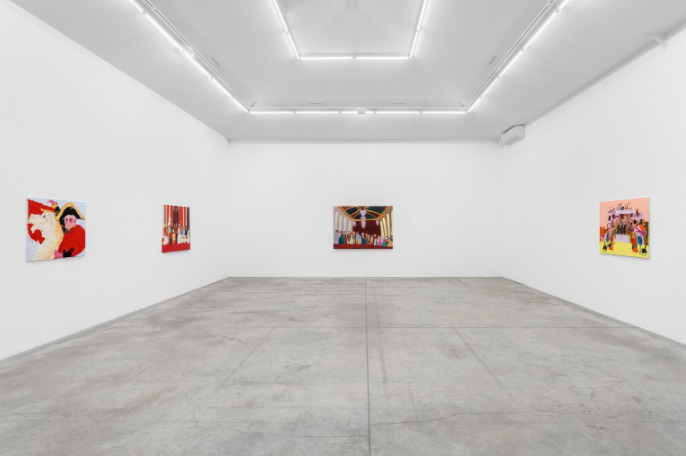
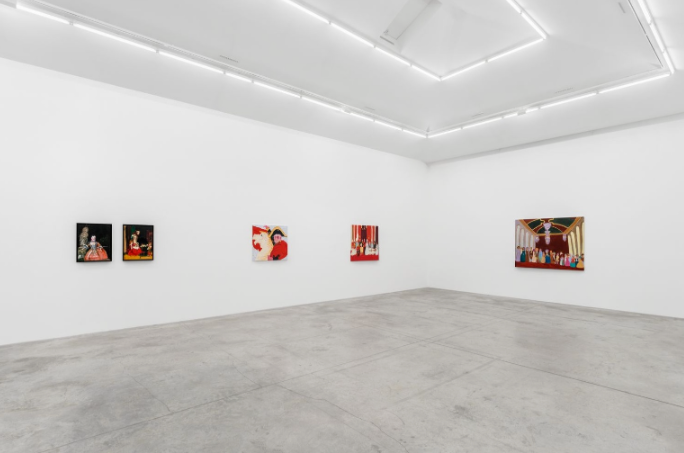
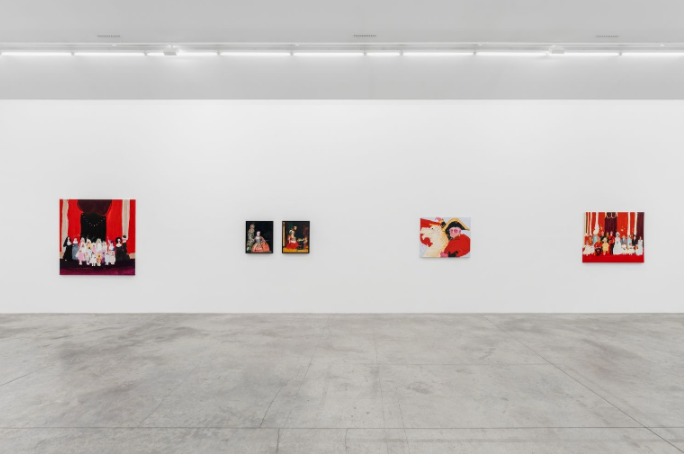
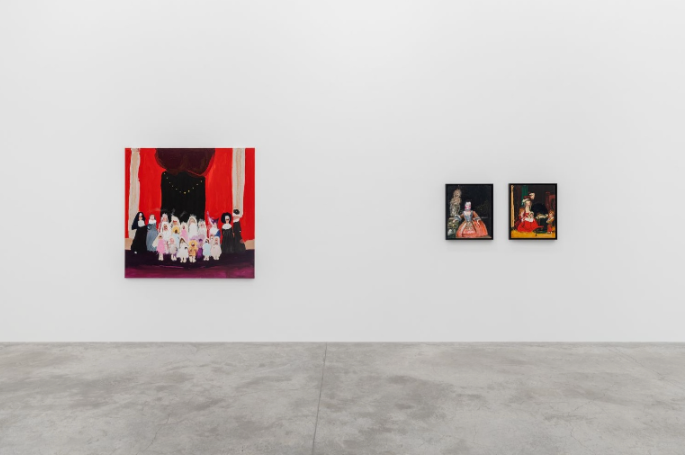
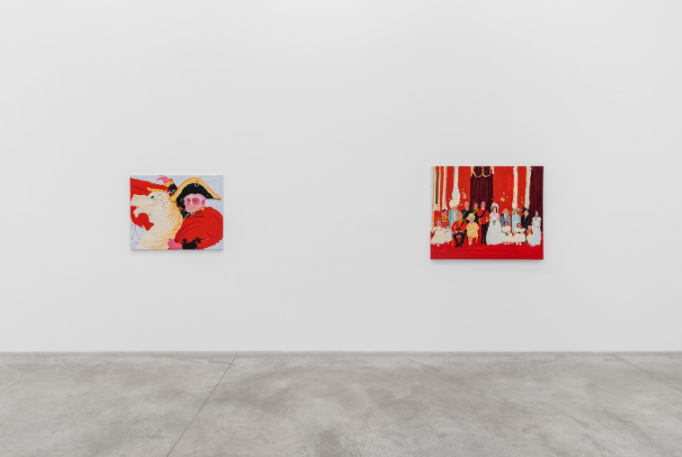
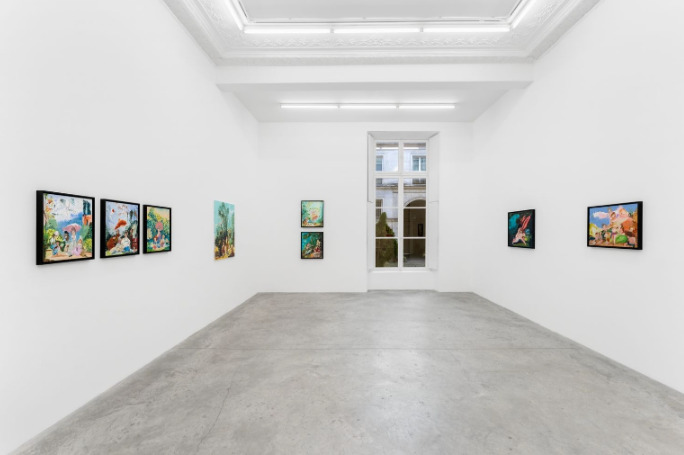
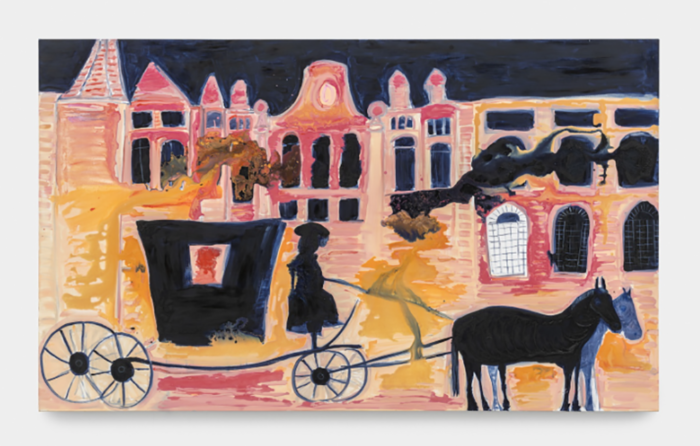

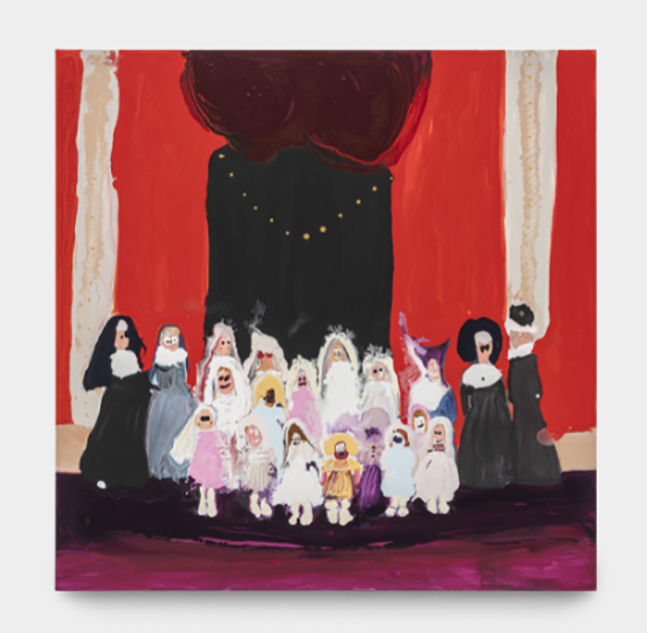
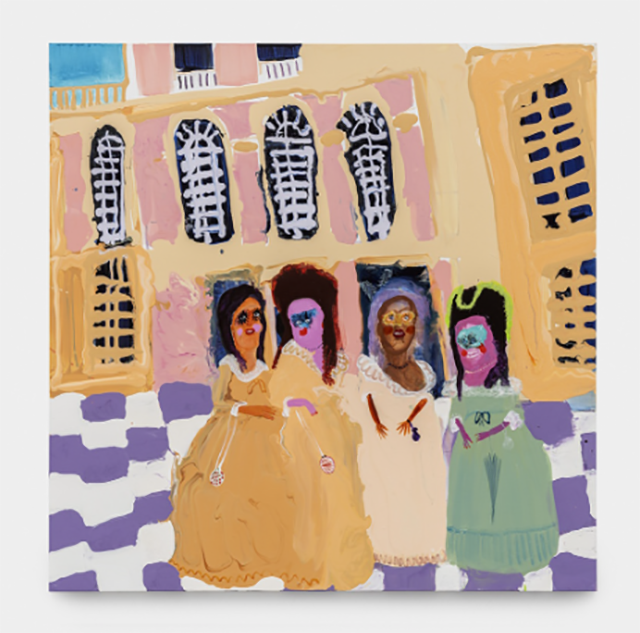
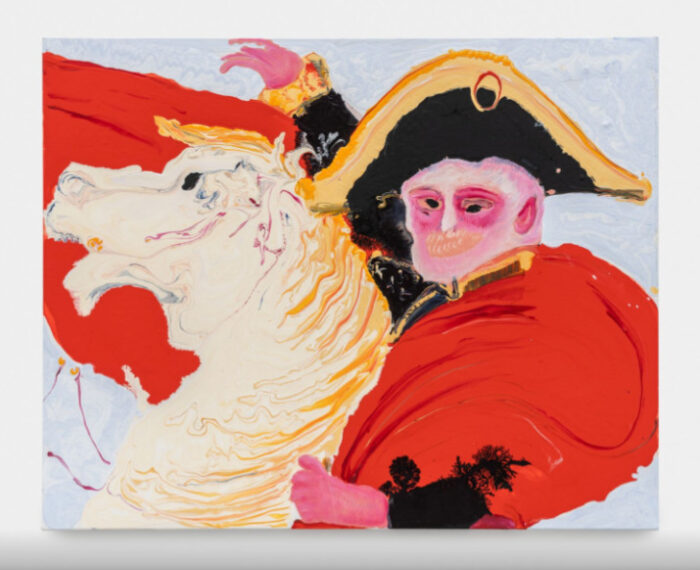
Genieve Figgis: The Pursuit of happiness at Almine Rech, Paris
Jan 7 – Feb 11, 2023
All images courtesy of Almine Rech and Genieve Figgis
PR – The work of Genieve Figgis is that of a liberation enterprise. It is a question, canvas after canvas, of relieving our imaginations and releasing the beings – or the spectres – who haunt our History. From Madame de Pompadour to Marie-Antoinette, from Count Fersen to Napoleon, she evokes a universe of royalty and power, where a brittle prestige gives way to a voluptuous strangeness, where characters become creatures, inhabitants of a grotesque world. The singular touch of Figgis gives each portrait the appearance of a mask, a disguise, and her work at large amounts to an ethereal study of a carnival cast. The artist offers us distance; the comic and the absurd free us from the weight of a suffocating heritage of representatives and symbols which no one chose. These portraits present surreal beings where garish colours mingle, where gazes are lost, where mouths twist and expressions melt. There is, in each one of them, a form of monstrosity. This strategy of subversion pushes Figgis towards the canons of the Rococo genre, in particular La Bascule by Jean-Honoré Fragonard (1750-1752), or Lovers in a Park by Boucher (1758). Many works also show rural and bucolic worlds, places of leisure and scenes of pleasure. The paintings are filled with cherubic angels and signs of love. The Rococo style, which appeared at the beginning of the 18th century, was precisely intended to make people forget reality, the decline of a past glory through light scenes of gaiety, of joie de vivre. The paintings of the period depict pastoral scenes and walks of aristocratic couples, which Figgis echoes, morphs, and dissects here. The multiple portraits of Marie-Antoinette are an homage to this figure and a recognition of her long-lasting influence and presence in history, a place that so many remarkable women are still deprived from. For Figgis, Marie-Antoinette remains an icon, and her paintings try to grasp a character who went through a forced marriage and her search for happiness in the golden jail of Versailles.
– Rebecca Lamarche-Vadel
